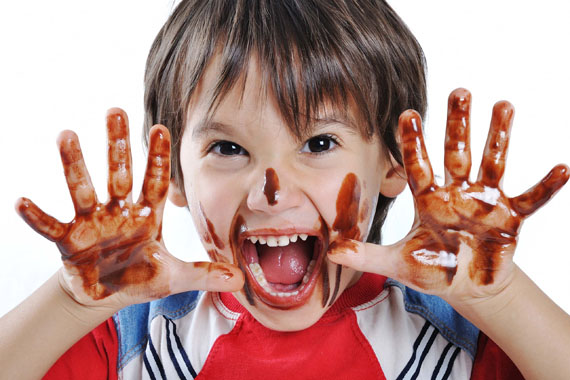News >> Kids
6 common medical myths BUSTED!
 27 Apr, 2015
27 Apr, 2015
Will eating at night make you fat? Does sugar make kids hyperactive? Do we lose most of our body heat through our head?
Well, these are just some of the commonly held myths, which according to an article in the Christmas issue published on bmj.com, are nothing but fiction.
Researchers from the Indiana University School of Medicine looked at six myths related to the holiday and winter seasons and then analysed the evidence to find out if the myths were true or false.
The other such myths include Do suicides increase over the holidays? Are poinsettias toxic? Hangovers cures, do they work?
The authors, Rachel Vreeman and Aaron Carroll, explored the science behind six myths commonly associated with the holidays yet relevant year-round, reports the British Medical Journal.
Parents believe that when their children have been given a drink containing sugar (when it is actually sugar-free) they rate their children''s behaviour as more hyperactive. In fact, the difference in behaviour is all in the parents'' mind.
But, at least 12 studies have shown that sugary drinks, sweets and chocolate, have no relation with hyperactivity among kids.
With Christmas and New Year approaching, many people start wearing hats in cold weather owing to the strongly held belief that we lose 40-45 percent of our body heat through our head.
However, the authors have argued that there is nothing special about the head and heat loss and "if this were true, humans would be just as cold if they went without trousers as if they went without a hat".
There are many who go by the rule of not eating at night thinking that they won't get fat by doing that. But the authors claim that it's all hogwash.
One Swedish study seemingly supported this theory initially as obese women reported eating more at night than non-obese women. However, in reality the women were not just ''night eaters'' but were generally eating more meals. The simple truth is that people put on weight because they consume more calories than they burn—there is no getting round this, say the authors.
The research also found that suicides do not increase over the holidays. Studies conducted around the globe show that, while the holidays may be a difficult time for some, there is no scientific evidence to suggest a holiday peak in suicides, according to Dr. Vreeman and Dr. Carroll.
Also, they found out that poinsettias are not toxic and that hangover cures do not work
Source: bdchronicle

